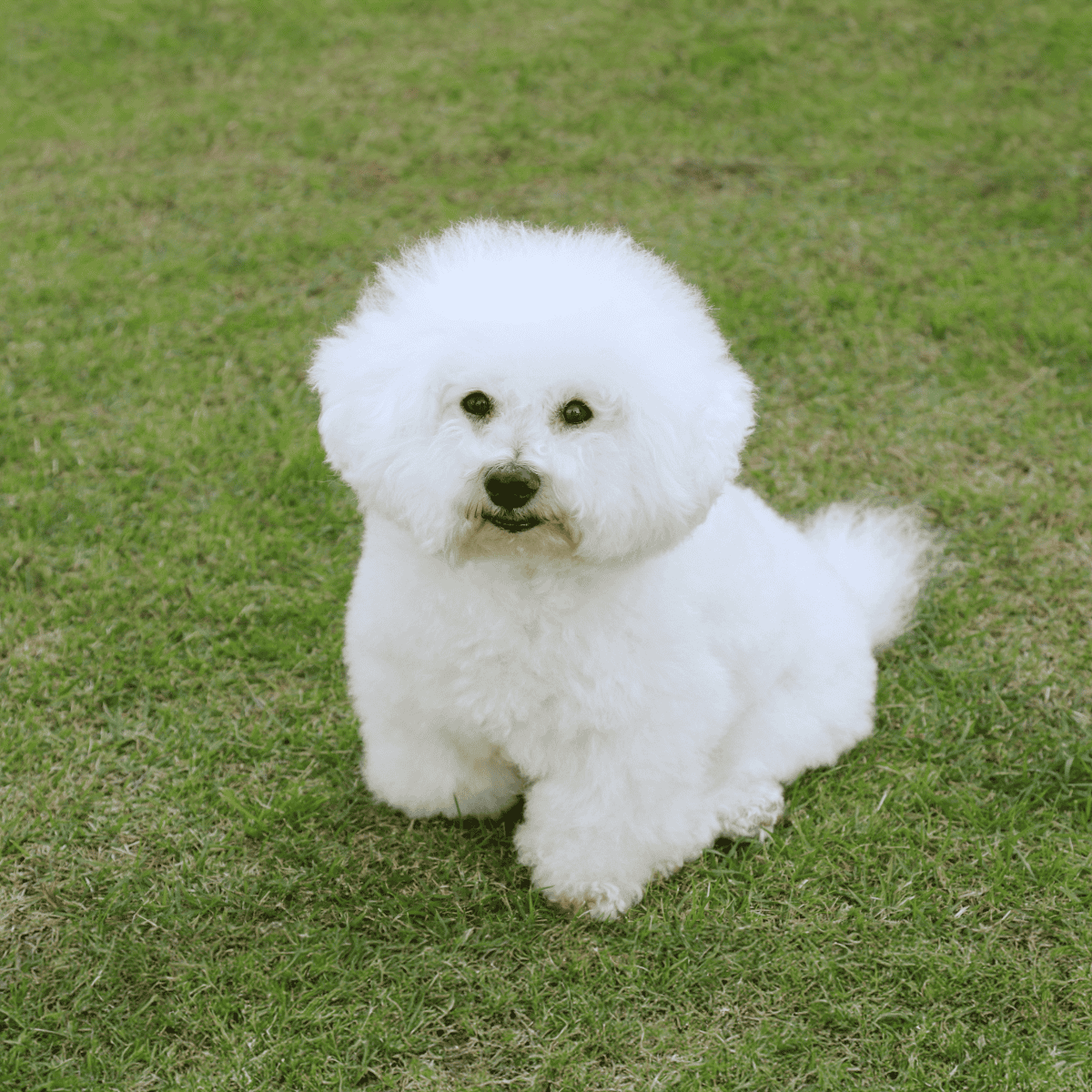
Bichon Frise
Shortcuts
The Bichon Frise, known for its fluffy white coat and friendly demeanor, easily captures hearts. These friendly dogs form strong connections with their owners and are perfect for people with allergies due to their hypoallergenic coats. They adapt well to various living situations, thriving in apartments and houses.
Whether playing outdoors or cuddling on the couch, Bichons enjoys being part of the family’s daily activities. Their small size and vibrant personality make them suitable for all types of families, including single-person homes and those with other pets, making them versatile companions.
Breed Overview

Height
9.5-11.5 inches
Weight
12-18 pounds
Lifespan
14-15 years
Colors
White, white and buff, white and apricot, white and cream
Suitable for
Anyone looking for an intelligent, low-shedding, hypoallergenic breed with a personality
Temperament
Playful, curious, charming


Height
9.5-11.5 inches
Weight
12-18 pounds
Lifespan
14-15 years
Colors
White, white and buff, white and apricot, white and cream
Suitable for
Anyone looking for an intelligent, low-shedding, hypoallergenic breed with a personality
Temperament
Playful, curious, charming

The Bichon Frise is an incredibly delightful and joyful small dog, celebrated for its fluffy and hypoallergenic coat. They love regular grooming to maintain their charming appearance and thrive on daily exercise. Their adaptability and trainability make them perfect companions.
Characteristics
Energy

Health

Sociability

Trainability

Lifespan


Enjoying this read?
We publish this content for free to generate interest in our Premium members' area. By subscribing, you can ask the writer any questions related to pet care and this article, get access to 100+ Premium Pet Care Guides and go Ad-Free with DogFix Premium for $2.99.
Health Conditions
Bichon Frises are generally healthy and known for their vitality and long lifespan. However, they can be susceptible to specific health issues.
Minor Conditions
- Dental problems
- Bladder problems
- Cataracts
Serious Conditions
- Luxated Patella
- Cushing’s Syndrome
- Portosystemic Shunt
- Hip Dysplasia
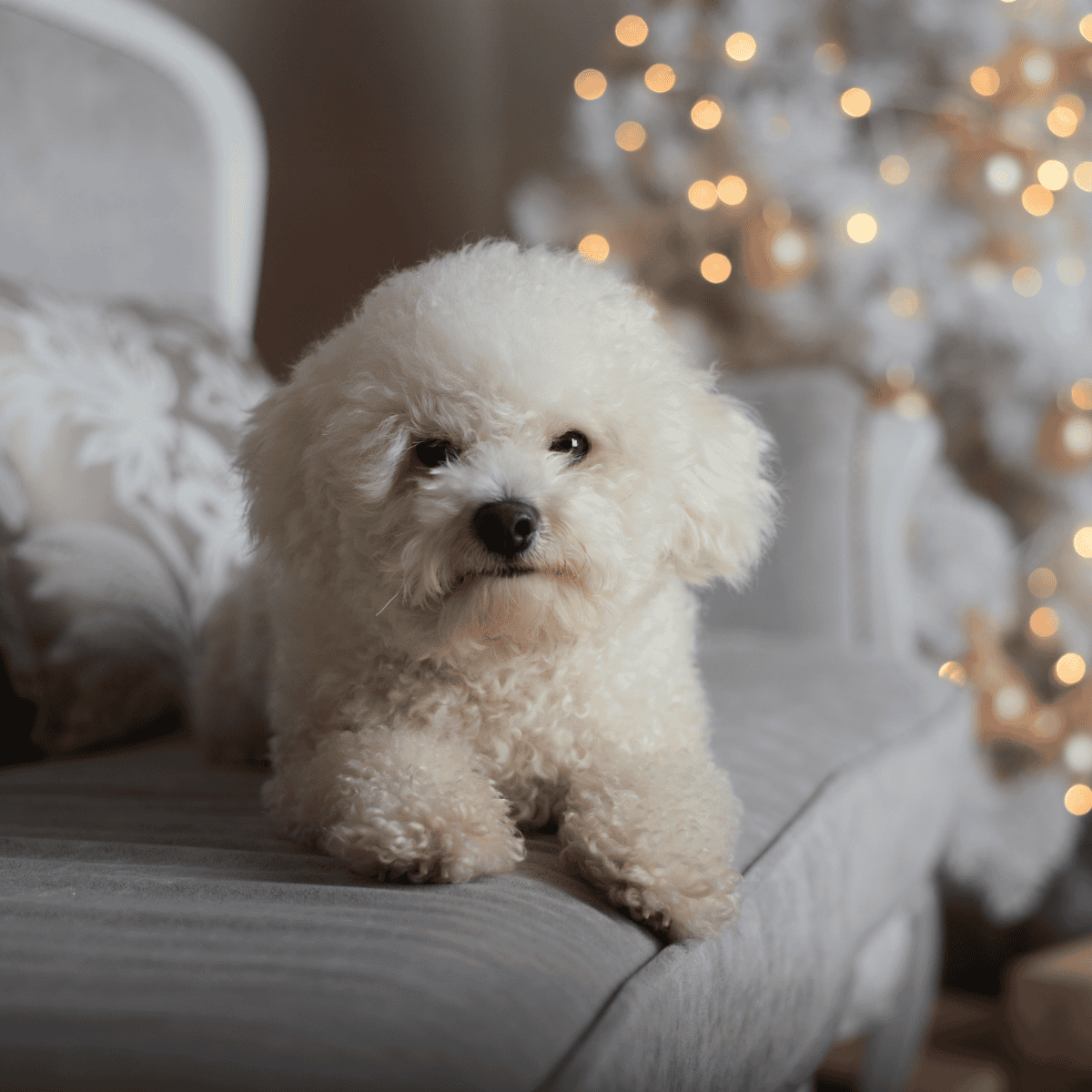


Bichon Frise Puppies
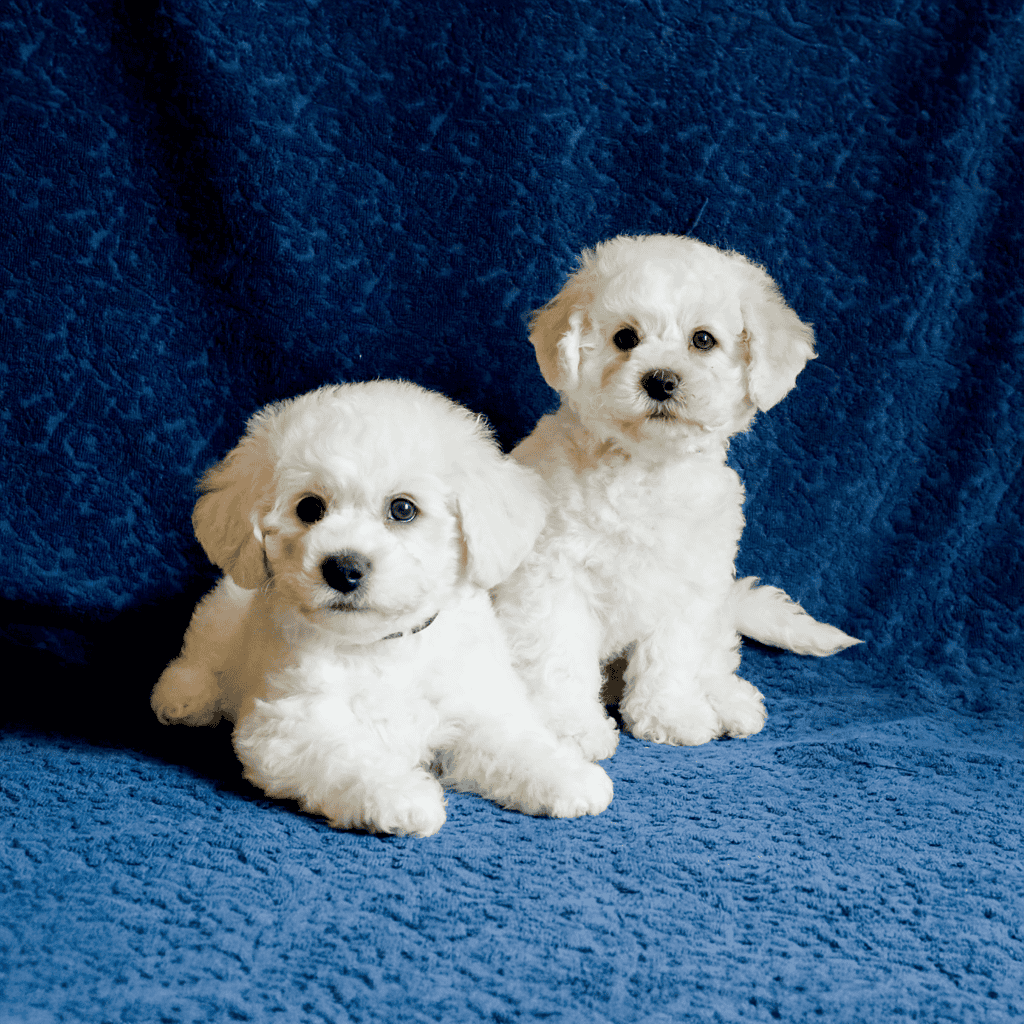
Bichon Frise puppies are irresistibly adorable with their fluffy, curly coats and playful personalities. Known for their friendly and affectionate nature, these little dogs thrive on companionship and enjoy being around people. Their small size makes them perfect for various living situations, from apartments to larger homes.
Temperament & Intelligence Of The Bichon Frise
The bichon frise is renowned for its delightful temperament. It is very social, affectionate, and cheerful. These dogs thrive on human interaction, making them perfect companions for families, singles, and seniors. Their friendly and upbeat nature ensures they’re often the center of attention.

Bichons are highly intelligent and curious, which makes them relatively easy to train with positive reinforcement. They love learning new tricks and performing, which keeps training sessions fun.
Are These Dogs Good For Families?
Bichon Frises are perfect for families, adaptable to homes with kids thanks to their sturdy build, distinguishing them from other small breeds, and safer around children. Teaching kids to be gentle is vital, as rough play could cause injuries. These dogs are hypoallergenic, shedding minimally, making them great for those with allergies.
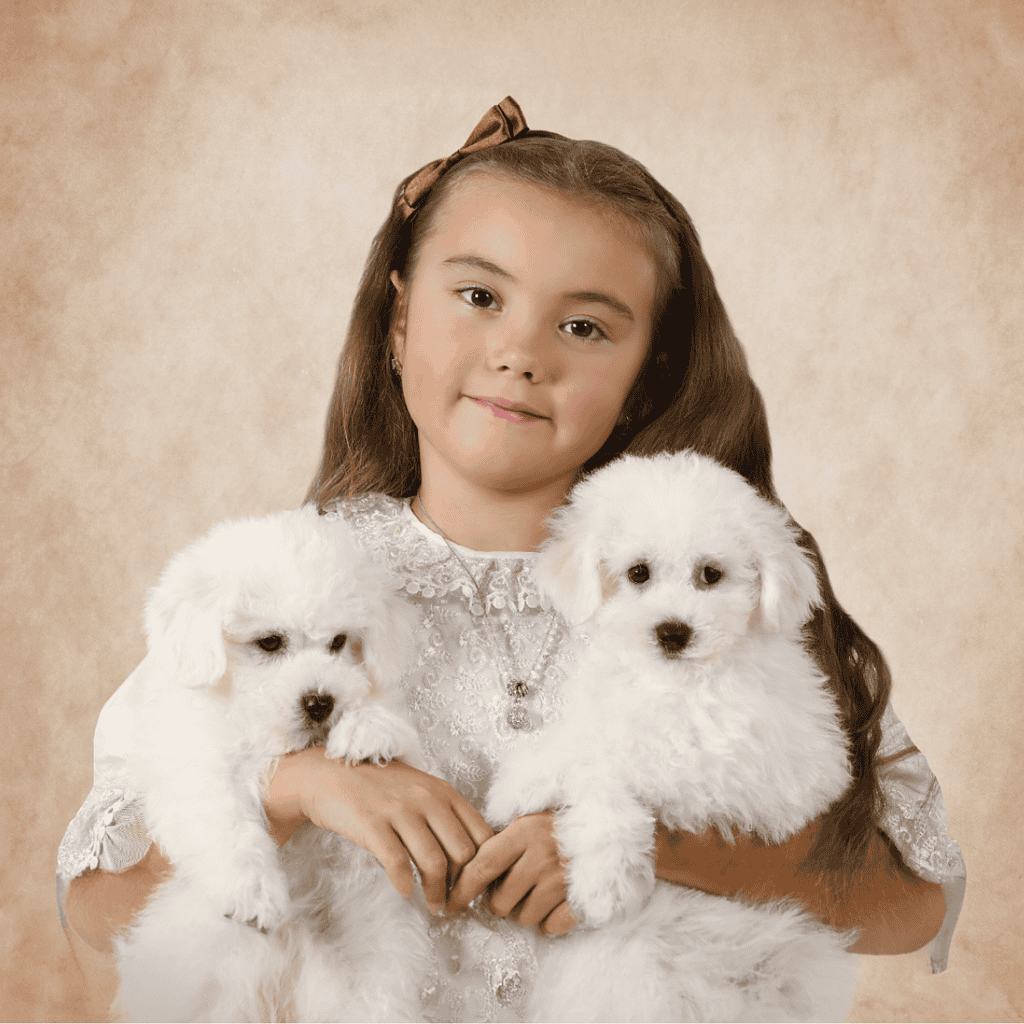
These friendly dogs fit well in various homes, including apartments, but they don’t like being alone and thrive on family interaction. Bichons crave attention and love being involved in family activities, highlighting their friendly nature.
Does This Breed Get Along With Other Pets?
The Bichon Frise is known for its friendly nature, making it an excellent companion for other pets in the household. Early socialization is essential to help puppies build positive relationships with various animals as they grow.
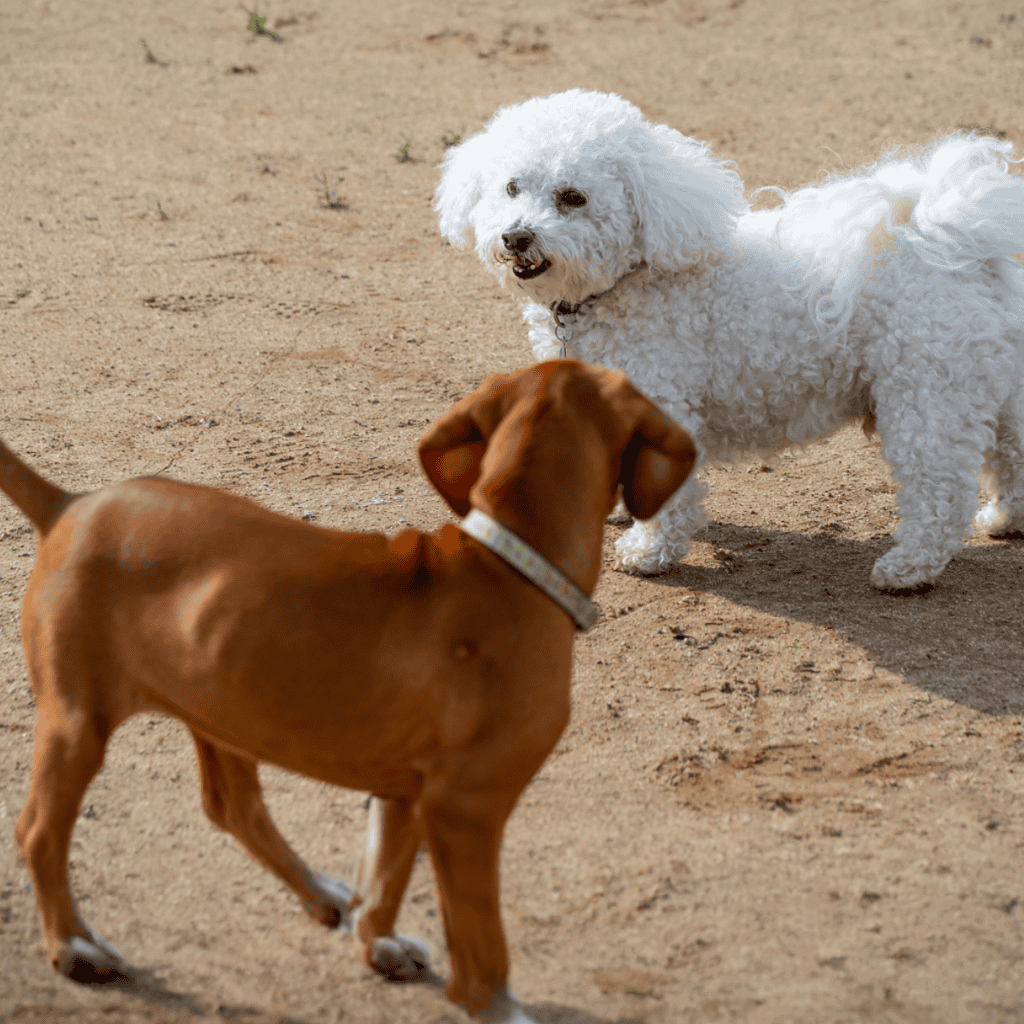
Their friendly personality makes Bichons blend well with different pets, creating a harmonious and delightful family environment. Proper introduction methods and early socialization ensure a seamless transition into a multi-pet household, further enhancing the Bichon Frise’s reputation as an adaptable and affectionate breed.
Food & Diet Requirements
Taking great care of your Bichon Frise’s health involves providing them with top-notch, well-rounded nutrition, whether it’s through nutritious commercial dog food or vet-recommended homemade meals. The key is prioritizing quality ingredients and a well-balanced diet, ensuring they get the essential proteins, fats, and vitamins needed to thrive.
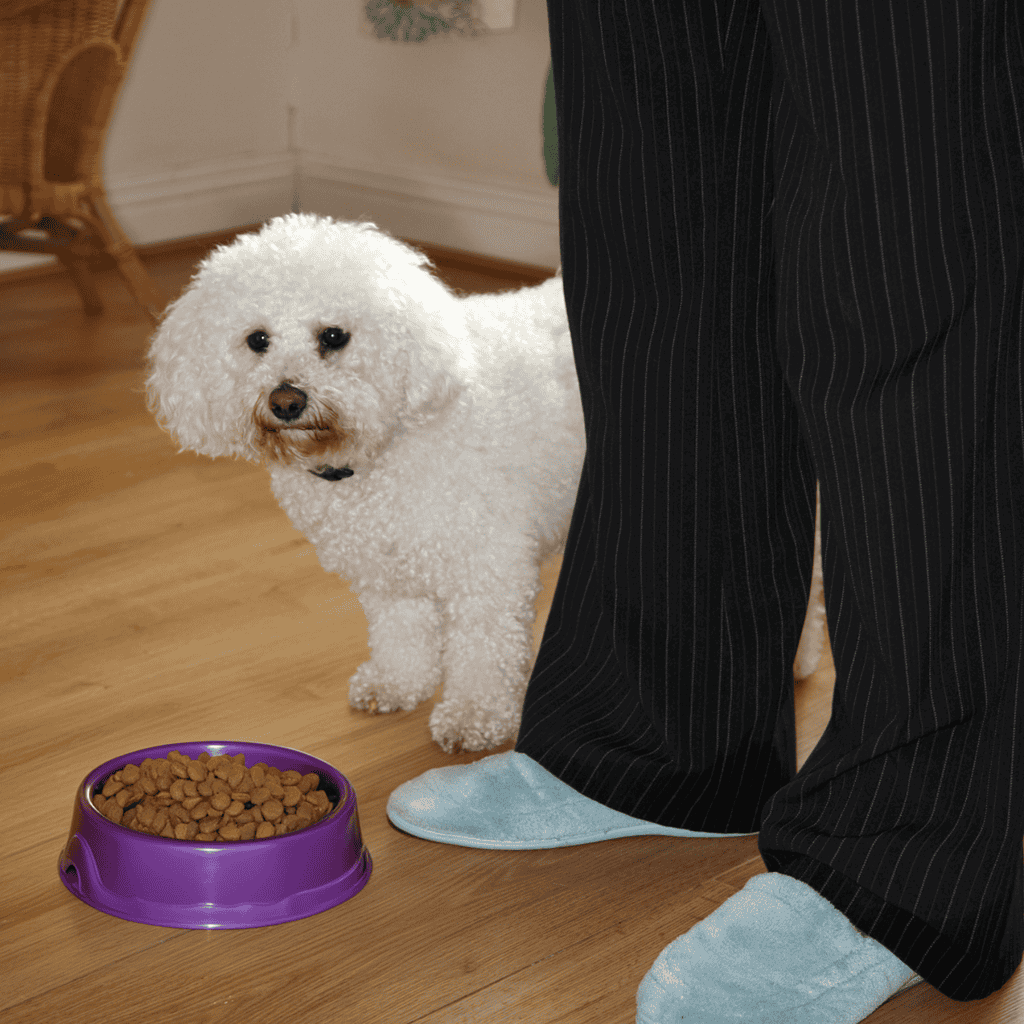
For Bichons prone to allergies, it’s crucial to stay vigilant for signs of skin irritation and consider adjusting their diet based on professional guidance. By establishing healthy eating habits and portion control, you’re helping to safeguard their well-being and overall contentment.
Exercise
The Bichon Frise is an energetic dog that needs daily exercise to remain healthy and content. It benefits from at least one daily walk lasting 20-30 minutes and enjoys engaging in 15-20 minutes of interactive play. Suitable activities include fetch, tug-of-war, and agility games, which help fulfill its exercise requirements.
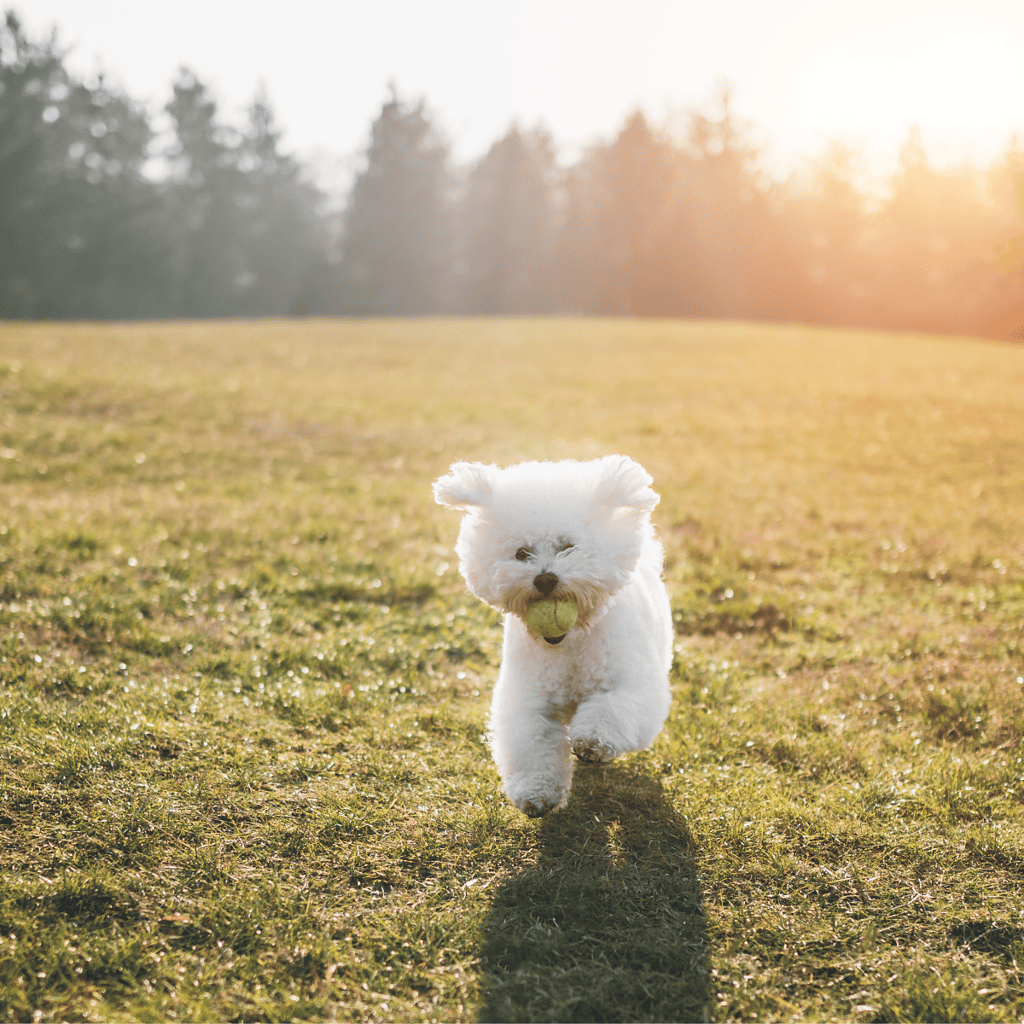
Due to their high curiosity and speed, keeping them on a leash in unsecured areas is essential to prevent them from running off.
Training
Bichon Frises are intelligent and generally easy to train. They enjoy learning tricks, so keeping training sessions short maintains their interest, and positive reinforcement, such as treats and praise, enhances effectiveness.
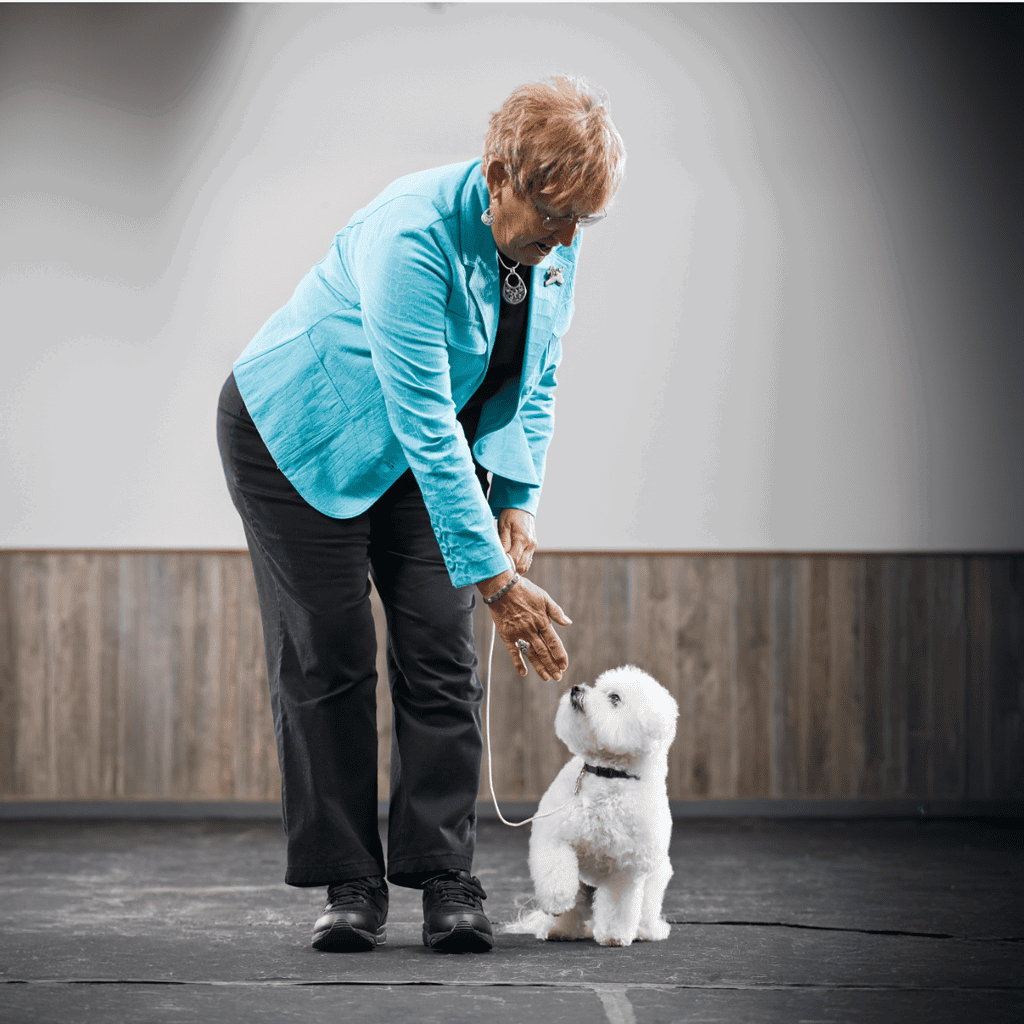
Housetraining can be challenging, requiring patience and routine to master. Bichons are sociable and need regular interaction to avoid negative behaviors. Mixing commands during sessions and early socialization with others is key to a well-balanced Bichon.
Grooming
To maintain its appearance, the Bichon Frise’s white, fluffy coat demands regular grooming, including monthly visits to a professional for bathing and clipping. Owners can consider home grooming to save on costs. Daily to thrice-weekly brushing is essential to prevent matting and tangling, as Bichons shed minimally.
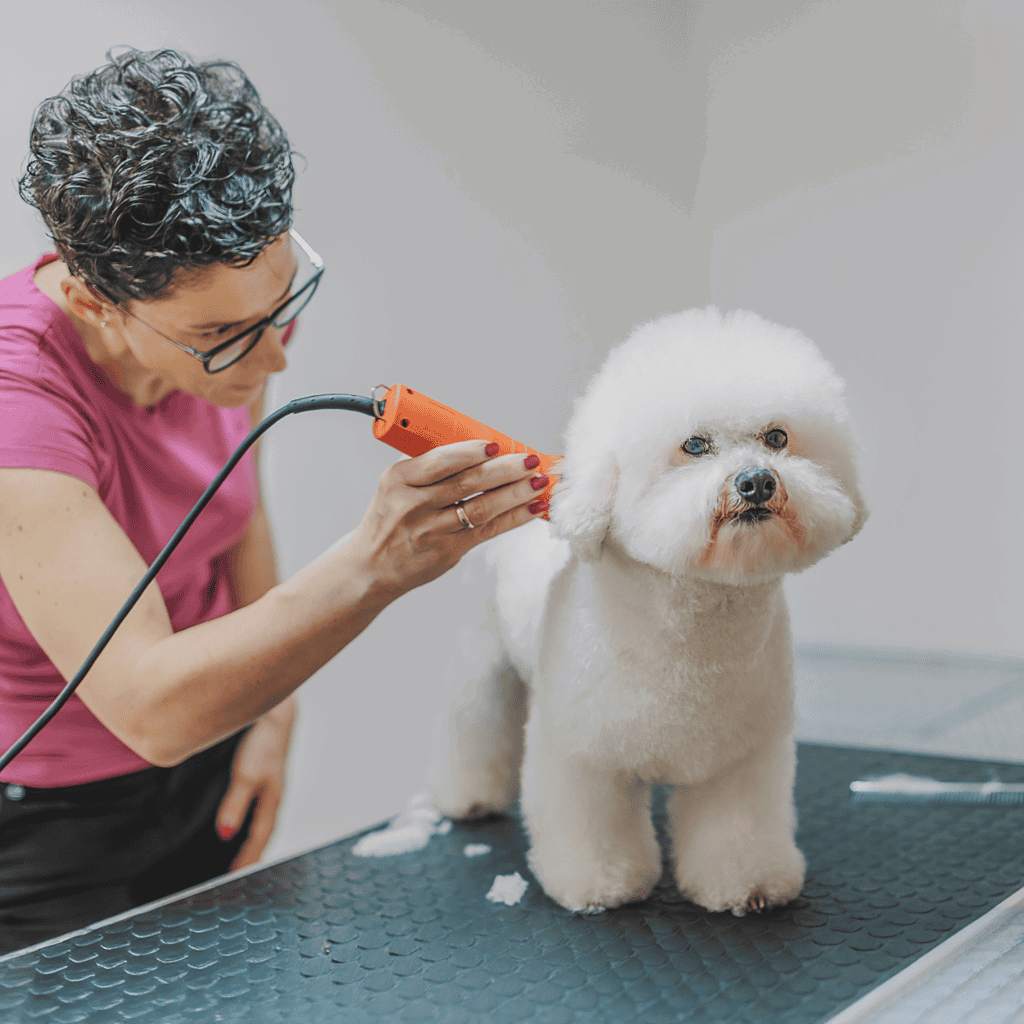
Attention to dental care is crucial for Bichons due to their susceptibility to dental issues. Regular brushing of their teeth, complemented by vet-approved dental treats and routine professional cleanings, can help maintain oral health.
Male Vs. Female
Choosing between male and female Bichon Frise requires evaluating factors like size and personality. Males typically are larger and more playful, while females might be more independent and occasionally more stubborn.
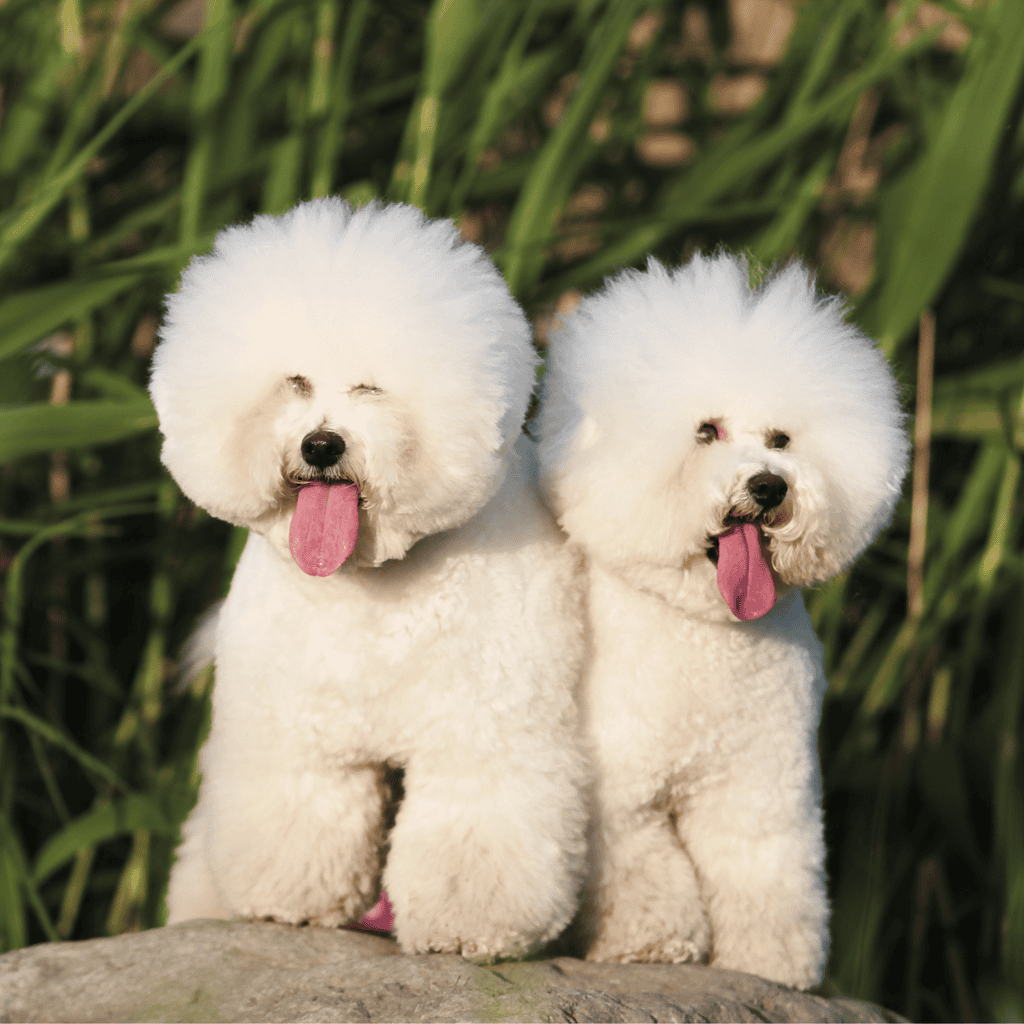
Consider how they interact with other pets and reproductive management; mixed-gender groups often fare better, and spaying or neutering can address reproductive issues. Each dog’s persona varies, influencing the final choice and personal preferences.
Fact #1: Bichon Frises are centuries-old dogs
Originally from Tenerife, Spain, the Bichon Frise began as a sailor’s companion, evolving in France into the beloved lapdog seen in royal courts and among the nobility. Their cheerful and playful nature, fluffy white coats, and round eyes made them adored universally.
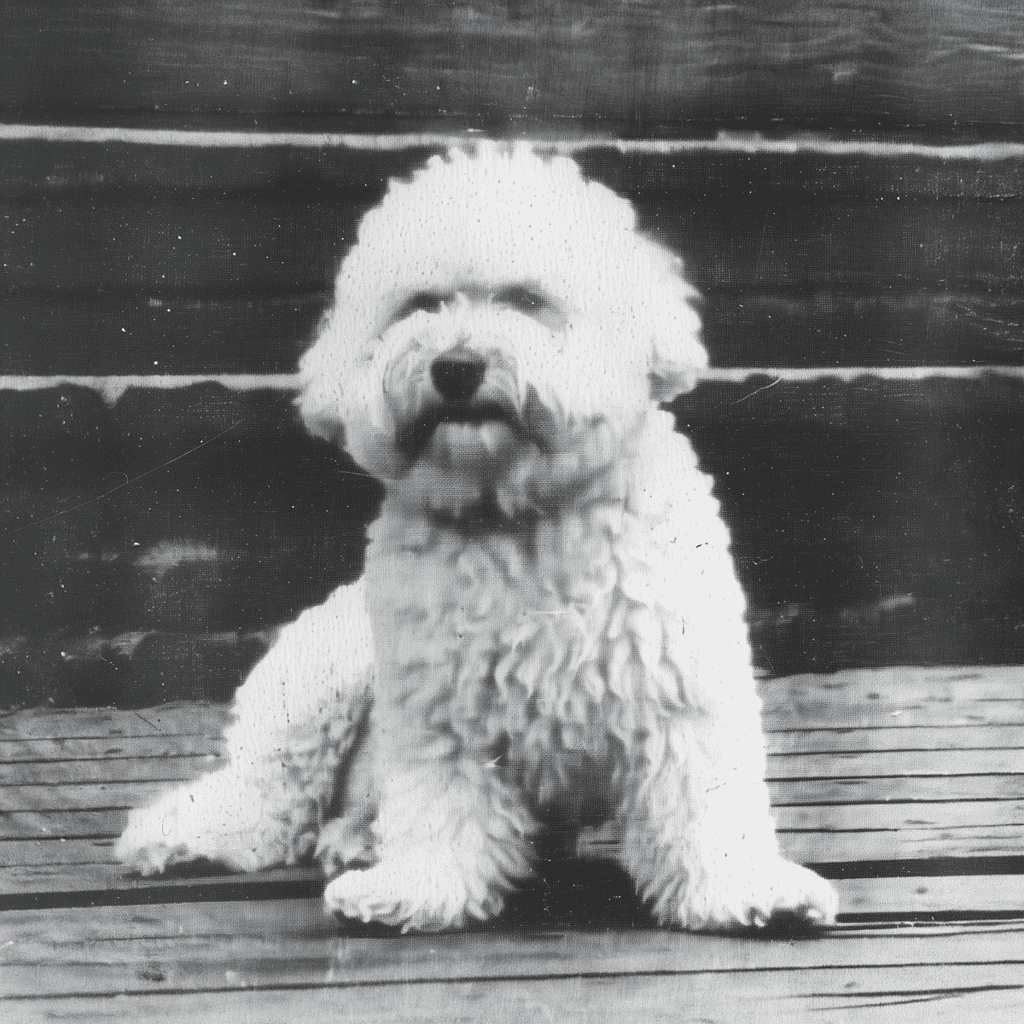
Over centuries, the Bichon Frise has shown remarkable resilience and endured civil and world wars over centuries due to its adaptable and endearing qualities. Today, they serve as energetic companions and lapdogs, cherished for their affectionate personality and vibrant demeanor.
Fact #2: The US only got the Bichon Frise in the ’50s
The Bichon Frise holds a fascinating European heritage from the 13th century, rich with captivating stories and traditions. It wasn’t until the 1950s that this delightful breed found its way to the United States, with the first recorded litter of American-born Bichon Frises stealing the hearts of many in 1956. This marked the beginning of the breed’s endearing presence in the US.
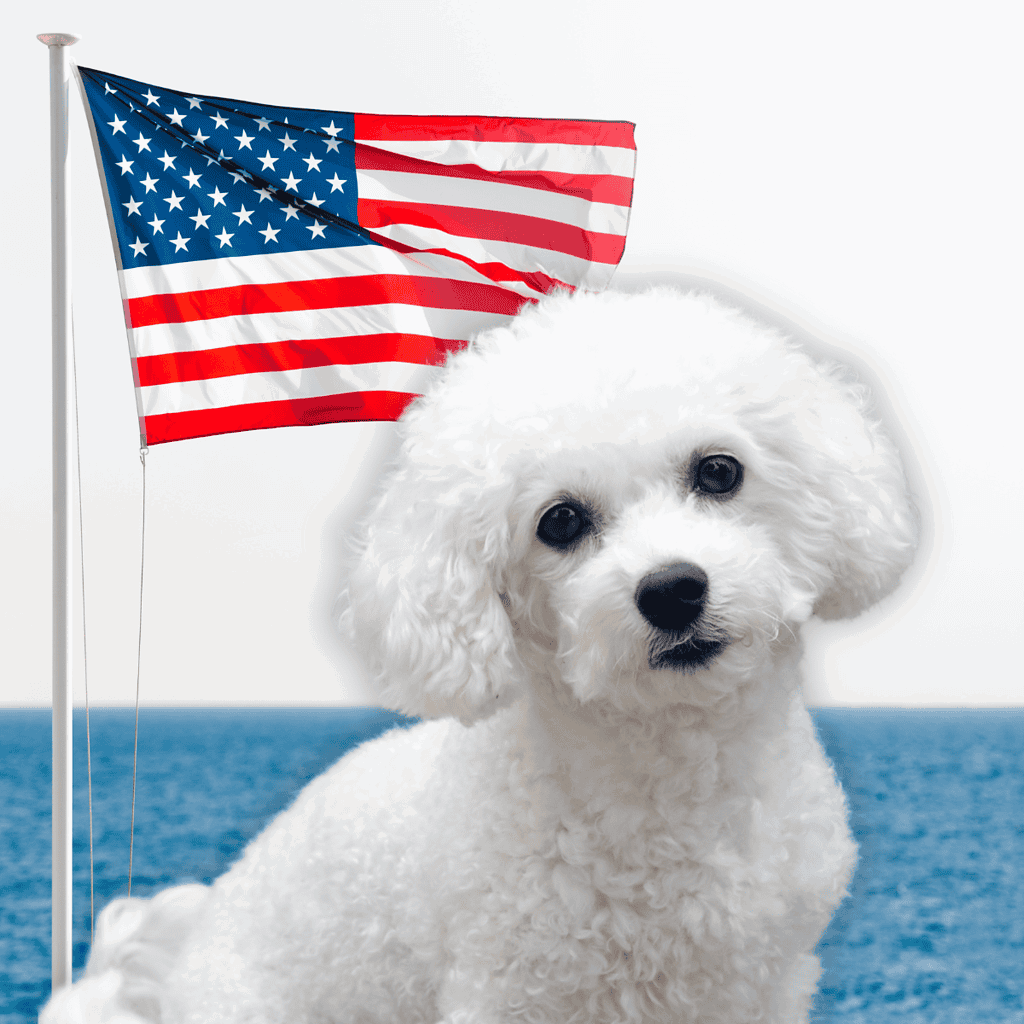
After its introduction, passionate breeders across various regions embraced and nurtured the breed, sowing the seeds for the American Bichon Frise lineage. Despite initially flying under the radar, the Bichon Frise finally earned well-deserved recognition from the American Kennel Club (AKC) in 1972, propelling its gradual rise in popularity and cementing its unique place in the hearts of dog lovers nationwide.
Fact #3: They inspired a French word.
French royals adored the Bichon Frise, which provided exceptional care and luxury for them to the extent that a king transported them in baskets. This lavish treatment led to the French word “bichonner,” meaning “to pamper,” reflecting their cherished status and influence on the language.
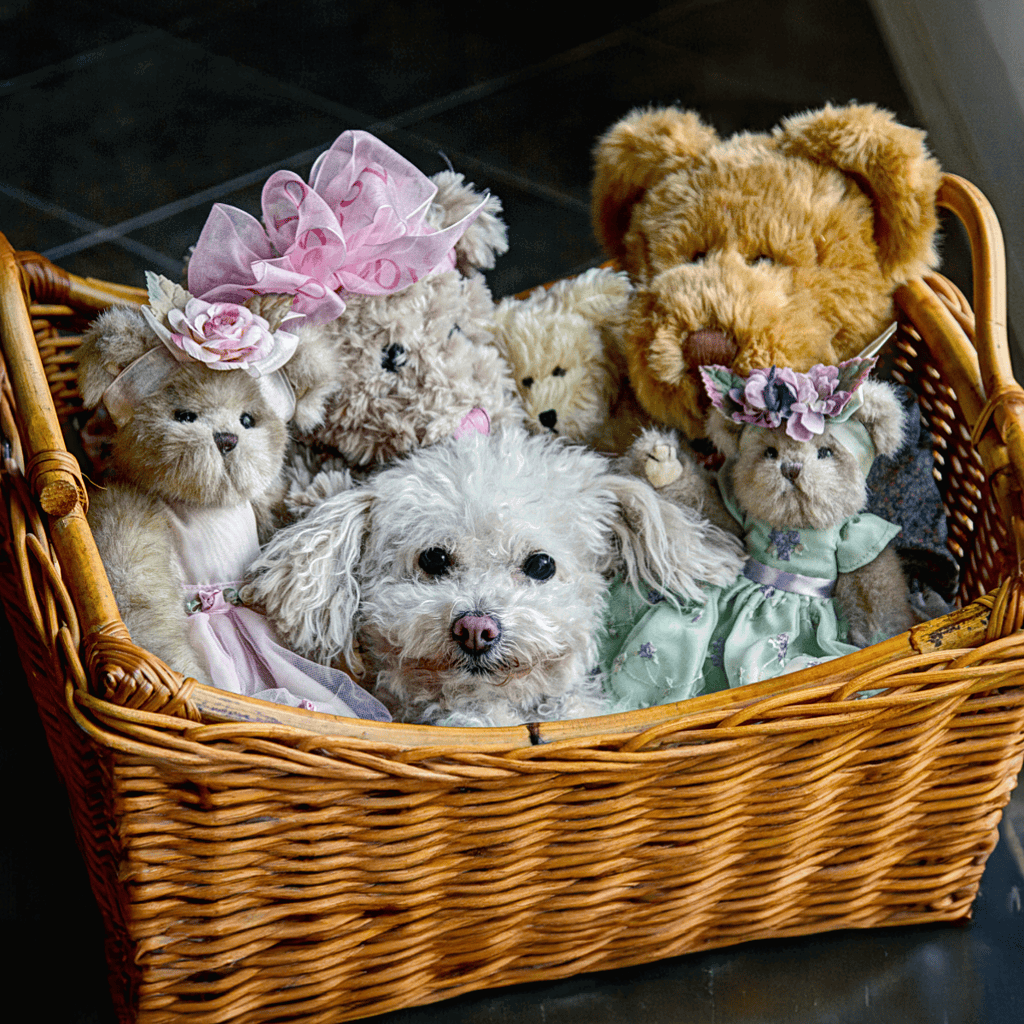
The term “bichonner” emphasizes the breed’s history of indulgence and high regard among nobility. Their pampering highlights the special place Bichon Frises occupied in French culture, demonstrating the extraordinary affection and care they received from their royal companions.
Frequently Asked Questions
What is the average weight range for a Bichon Frise?
A Bichon Frise generally weighs between 12 and 18 pounds, a common weight range for males and females.
What personality traits are typically seen in Bichon Frises?
Bichon Frises are known for their friendly, cheerful, and playful nature. They are also highly affectionate and thrive on human companionship.
How long do Bichon Frises generally live?
Bichon Frises usually live between 12 to 15 years. Some may even live longer with proper care.
What are the standard size dimensions of a Bichon Frise?
A typical Bichon Frise stands about 9.5 to 11.5 inches tall at the shoulder, which makes it ideal for apartment living.
What variety of colors do Bichon Frises come in?
Bichon Frises are usually all white, although some may have cream or apricot shadings. These colors are usually most noticeable on their ears or bodies.
How often do Bichon Frises require grooming?
Bichon Frises need grooming at least once a month. Regular grooming helps maintain their fluffy coat and prevents matting. Brushing them several times a week is also recommended.

Didn’t find what you need? Use the search!
Search our database of over hundreds of posts with up-to-date information from our experts and veterinarians.

